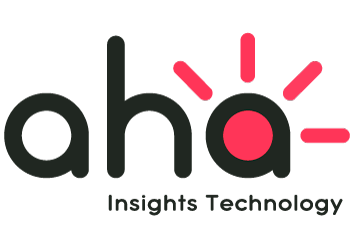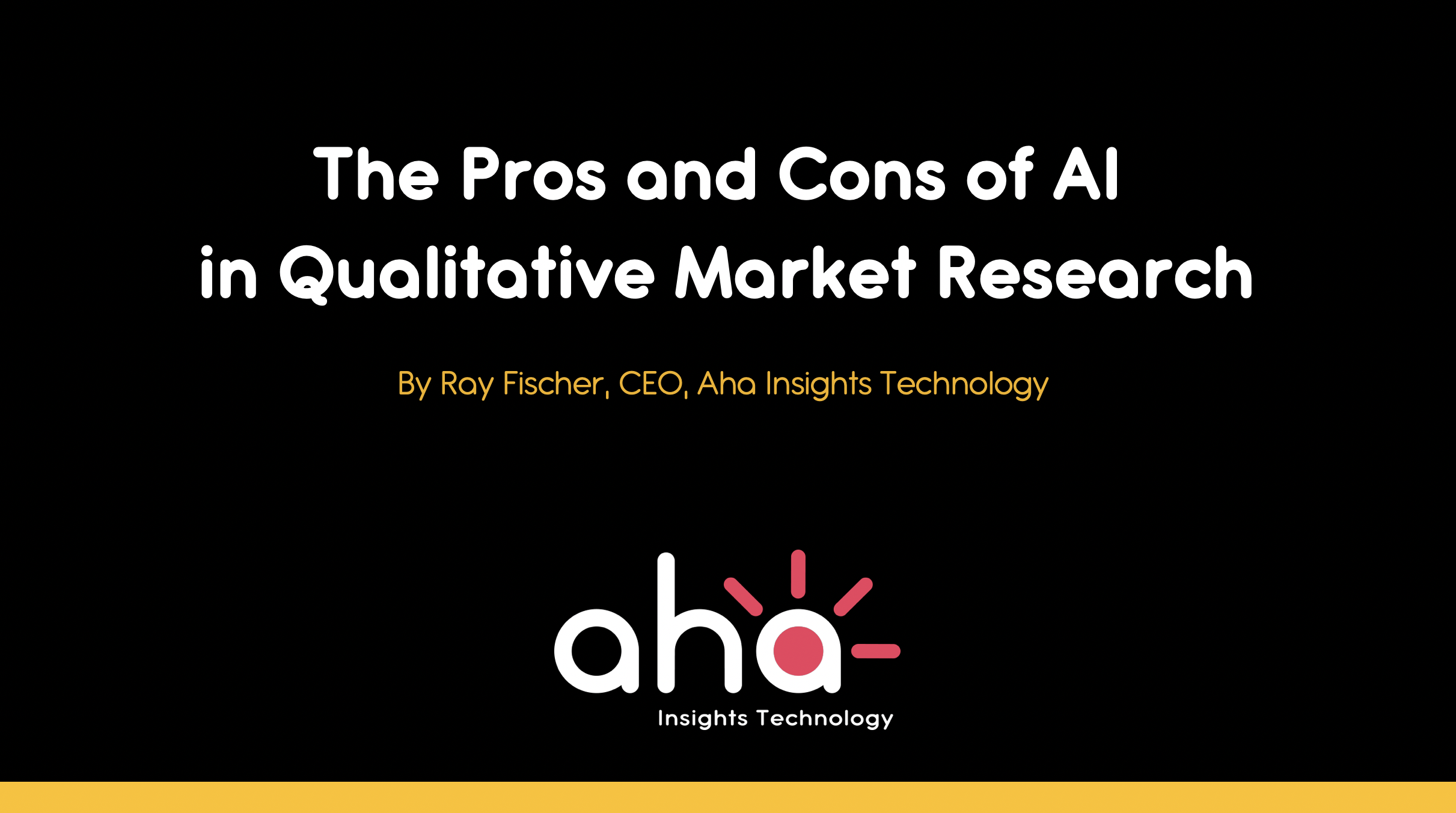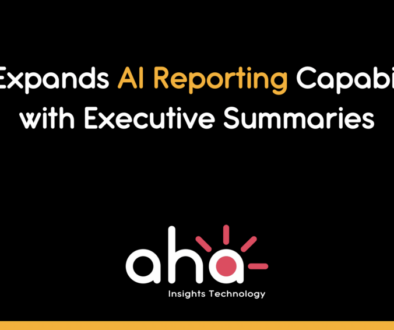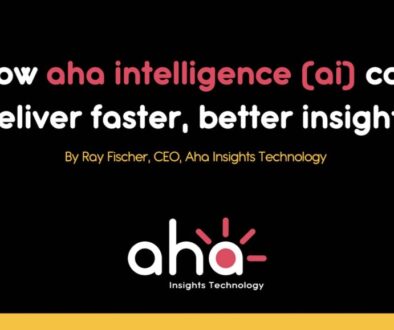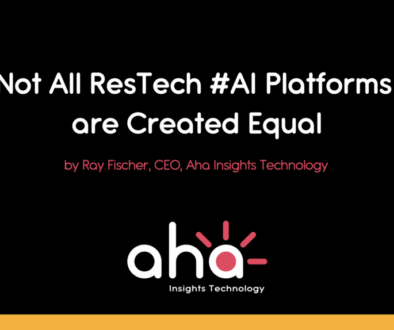The Pros and Cons of AI in Qualitative Market Research: A Year of Exponential Learning
Over the last year, you can’t read an article (or open an email), watch the evening news or go to a conference without hearing about AI. It’s everywhere. All with good reason: AI is a game changer that will infiltrate every part of our lives for eternity. It’s even impacting how we do market research. That’s why, after six months of beta testing, we introduced our own aha intelligenceTM (AI) analysis and reporting tools and part of our aha insights technology platform early last year. We were among the first to do so because we knew that it could benefit our clients to deliver better insights – faster. And we were right. AI will play a significant role in how we approach study design, analyze respondent insight, and create actionable reports.
In this blog, we will delve into the pros and cons of AI in the qualitative market research landscape, exploring how these technologies have reshaped methodologies, improved efficiency, and raised important ethical considerations. Enjoy!
The Pros
Enhanced Efficiency and Speed
- AI-driven tools have significantly accelerated data analysis and processing, reducing the time required for qualitative research projects.
- Automation of mundane tasks allows researchers to focus on more strategic aspects, enhancing overall project efficiency.
Advanced Sentiment Analysis
- AI algorithms excel in deciphering nuanced sentiments, enabling researchers to gain deeper insights into consumer opinions and emotions.
- This capability is invaluable for understanding the emotional context surrounding a brand, product, or service.
Improved Data Accuracy
- Machine learning algorithms contribute to the reduction of human errors in data interpretation, leading to more accurate and reliable research outcomes.
- Enhanced data accuracy is crucial for making informed business decisions based on qualitative insights.
Cost Savings
- Automating certain research processes and tasks can result in cost savings for businesses, making qualitative research more accessible to a broader range of organizations.
Client Reactions
- We involved our client base as we beta’d and evolved our AI (aha intelligence) over the past year. The feedback has been overwhelmingly positive.
- The positive reactions are driven by our earnest attempt to understand different user analytic processes and workflows to find solutions that will be efficient for everyone. We want more feedback…let’s talk!
- We have personally witnessed client confidence in AI growing as we rapidly roll out new features. They are seeing the accuracy and time savings that AI delivers…now. It’s only going to get better.
The Cons
Lack of Human Intuition
- AI may struggle to grasp the intricacies of human behavior and emotions, missing the depth of understanding that human researchers bring to qualitative analysis.
- The absence of human intuition can limit the interpretation of complex qualitative data.
Privacy and Ethical Concerns
- As AI processes vast amounts of personal data, there is an increased risk of privacy breaches and ethical concerns related to consent and data usage.
- Maintaining transparency and ethical standards in AI-driven research is crucial to building trust with participants.
Overreliance on Technology
- The temptation to rely solely on AI for qualitative research may lead to a disconnect from the human aspects of the process.
- Balancing technology with human expertise is essential to ensure a holistic approach to qualitative research.
Initial Implementation Costs
- Integrating AI into qualitative research processes may require significant upfront investment in technology, training, and infrastructure.
- Small and medium-sized enterprises may face challenges in adopting these technologies due to financial constraints.
The past year has been a remarkable period for AI in the qualitative market research industry, showcasing the potential for improved efficiency, accuracy, and depth of insights. We are thrilled with our own applications of AI, and we are just scratching the surface. However, navigating the challenges and ethical considerations associated with these advancements is crucial. As the industry continues to evolve, finding the right balance between AI-driven automation and human expertise will be essential for unlocking the full potential of qualitative research in the digital age.
If you would like to learn more about our insights technology platform and its AI capabilities, please reach out to us here. We’d be happy to show you what we can do for you.
